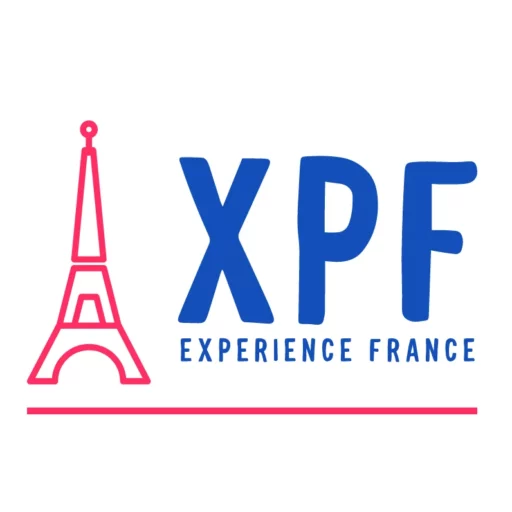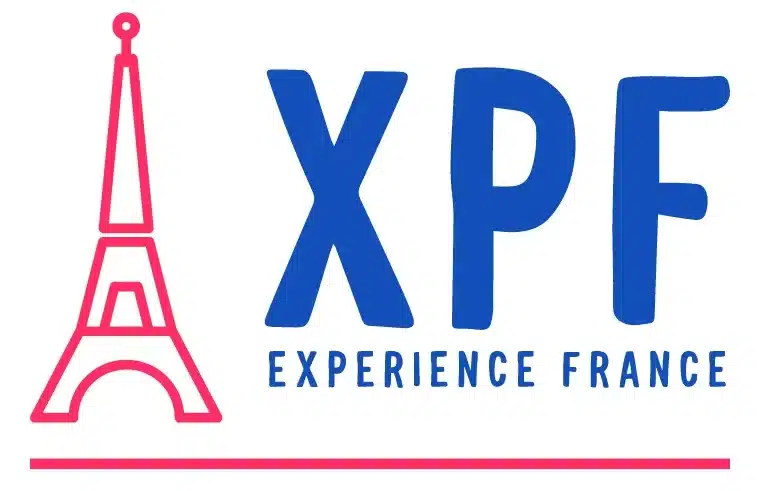French for Beginners - FAQ
Please message us via our Contact Us page if you cannot find an answer to your question(s).
Whether you’re a teenage novice, adult learner or want your whole family to learn French in France then here are our top tips for the best way to learn French:
- Listen to French audio regularly: Your brain needs time to hear the sounds of French so the more you can listen to, the better. An example of this working in English is: “I like to eat A apple for breakfast but I don’t like to eat too MUCH of them each day.” Your ear tells you that it is not the right way to say it even if you don’t know the grammar rule, the same applies for French. You don’t need to try to read along or translate it into English; simply play a French podcast, audiobook or film. Daily French news podcasts like this one are great because they use simple French and broadcast at the end of the day, therefore, you will probably have already heard the English news that day & have some idea of what they’re talking about. This is known as “comprehensible input”. (Alternatively, search for “Journal en Français Facile” wherever you get your podcasts.) Be careful with music though because it may contain too much slang, word-play or not reflect how French is spoken today. You will impress the French though if you can sing along to this classic by Edith Piaf.
- Get your favourite magazines, comics or documentaries in French: By flicking through subjects that you are already interested in, e.g. cycling, your brain will quickly identify “vélo” as French for “cycle”. Most importantly, compared to looking at random flash cards or text books, your brain also decides that this new memory is “worth storing” because you have other sensory inputs linked to it. E.g. Riding your cycle from the hotel to watch the Tour de France. Similarly, watching a short, simple French video about the birth of the USA will be more comprehensible to you than one about whether the word America is masculine (le) or feminine (la). This is refer known as “sheltered subject matter teaching” (SSMT).
- Don’t worry about making mistakes or speaking “Franglish”: French people appreciate it when you try to communicate with them in French & many words are shared between the languages so you will find a way to understand each other. Actually, so many French people speak some English now that we give you phrases to help you stick with your new French conversation skills, instead of slipping back into English. Obviously, there are exceptions, which is why we advise against trying to practice your new French skills with a busy & over-worked Paris waiter!
To summarise, as per our first language, the best way to learn French is the following order:
- Hearing & seeing
- Physically engaging experiences
- Speaking & learning from our errors
- Writing & learning grammar rules
You’re going to invest a lot of time & money looking for the best French school in France so how do you find the right one for you?
- Do you prefer classroom learning or practical, activity based learning? Yes, XPF is based upon the later but some people actually need to understand the rules, structure & exceptions of language before they feel comfortable to try speaking French. Which one are you? If you’re not sure we can offer you an online trial to find out.
- Why do you want to learn French?Do you need to reach a certain level of competence & obtain an accredited certification or are you looking to learn conversational French as quickly as possible? If it’s the former then try the following established language schools (alphabetical order): Accord Langues, Alliance Francaise, Berlitz, Elfe, LanguageTeams, LSI.
- Speak to them! There are a lot of French language schools & a lot of students being sent to Paris to learn French. Your time & money is precious so do not even consider a language school that will not talk to you & personalise the lessons to suit your needs. (A teenage student has different vocabulary requirements than a retired businessman!) Most importantly, ask them if you have the same teacher all week because often the teachers change a lot and they rarely use the same method or materials. (I used to end up with lots of photo-copied handouts in my text books as different teachers explained passé composé & l’imparfait in variously differing ways. Very annoying….)
It’s an important question: Should I learn French in Paris? One of the most asked questions that deserves some time to consider & look beyond the clichés but our simple answer is: not full-time.
Why not?
Simply because language learning cannot be rushed & if you’re stressed because the Paris waiter is impatient with you (did you see how many tables they serve?) then your brain will “lock up”. It’s the same reason that lots of us get anxious as soon as the teacher tells us that we will have to read the next paragraph from the French lesson. As the great polyglot linguist Michel Thomas said: “All stress inhibits true & effective learning.”
Does XPF have French lessons in Paris?
Yes but not in a language school or classroom. You will spend the day moving between locations (museum, metro/train stations, cafés); maximising your time in and around Paris immersed in real-world activities. Example day for our “Art Theme”:
- 9am – 10am: Prepare essential vocabulary for the transport trip & then take the train, metro or bus to the museum.
- 10:30am – 11am: Introduction to Musée Marmottan (world’s largest Monet collection)
- 11am – 1pm: Tour museum with XPF guide using comprehensible French.
- 1pm – 3pm: Traditional French restaurant lunch.
- 3pm – 5pm: Visit locations of famous impressionist paintings around Paris.
- 7pm: Evening apéro/dinner where Lautrec, Renoir, Gauguin etc once dined.
Learning French on-line has grown exponentially since French apps burst onto our smartphones & Covid forced us to stay home or avoid crowded areas. App stores & online resources like Youtube, Vimeo, Facebook & TikTok etc. have masses of French videos, vocabulary, grammar & flashcard apps to keep you busy for “free”. However, good, structured content is worth paying for so checkout the services from Babbel, Duolingo, FluentU, iTalki, Memrise, Pimsleur, Preply if you prefer to learn French alone.
Do they help you learn new words, phrases & grammar? Absolutely.
Do we retain more conversational French & create more long lasting memories* when we travel to France & immerse ourselves in physical activities that interest us? Absolutely.
This is why, with XPF, when you have returned home you will review, on-line with your XPF guide, the photos & videos from your immersions together with the new vocabulary you were immersed in.
*Scientists can measure this ability to create new neurons (neuroplasticity) and we prove this every time we get a song stuck in our head (earworm); or hear a song that recalls a special memory with someone or in someplace.
You don’t need to know the science or read the latest linguistic research to benefit from our immersions but here’s a summary from Professor Stephen Krashen:
“The solution to our problems in language teaching lies not in expensive equipment, exotic methods, sophisticated linguistic analyses, or new laboratories, but in full utilization of what we already have, speakers of the languages using them for real communication. I will also conclude that the best methods might also be the most pleasant, and that, strange as it seems, language acquisition occurs when language is used for what it was designed for, communication.”
This is how we all learn our mother language; the brain creates an association of ideas with the sounds and images from the outside world. In addition, Sheltered Subject Matter Teaching (SSMT), focusses on what interests you, not the grammar rules &, when combined with stimulating activities, this results in more comprehensible input and natural language acquisition.
To summarise, as per our first language, the best way to learn French is the following order:
- Hearing & seeing
- Physically engaging experiences
- Speaking & learning from our errors
- Writing & learning grammar rules
For those that want to delve deeper into the theory, science & research of second language acquisition we have collated a short introduction with some videos & links here.
Of course – we discover new words all the time. Just don’t get fixated on exact literal translations all the time because it will slow you down and, also, how you write English is not how you will speak in French. For example the French phrase for asking “What is it?” is “Qu’est-ce que c’est….”
My logical brain would be trying to translate word by word & I would get into my head that it meant: “What is that is?”
Even worse, I couldn’t even say the phrase because the sequence of letters shocked my eyes & my English tongue had no idea how to pronounce it easily. (But what a Scrabble hand!) The solution only arrived when I closed my eyes & listened to the phrase over & over before then using the phrase in daily life. At first I was trying to translate EVERYTHING instead of allowing my brain to hear new sounds & create new words; what the scientists refer to as neuroplasticity.
When your brain creates these new French words & phrase structures it will eventually “hear French” so that it will become unnatural for you to ask for more butter by saying:
“Puis-je avoir beurre” instead of the correct:
“Puis-je avoir du beurre“.
An example of this working in English is: “I like to eat A apple for breakfast but I don’t like to eat too MUCH of them each day.” Your ear tells you that that is not the right way to say it even if you don’t know the grammar rule; the same applies for French!
The short answer is: yes, if you plan to live there for longer than 90 days at a time.
It’s true that lots of French people speak or understand some English but away from the large cities or when dealing with administration then a good level of French will:
- Encourage French people to help you more than if you just speak English slowly or point at your smartphone.
- Make you feel part of your new community and ease your integration into a new culture.
- Be required if you want to apply for French nationality and it is currently being proposed for multi-year visa applicants who previously only needed to show proof that they were learning French.
Many people have cited “failure to speak French” and “not integrating into their new community” as top reasons for seeing their dream move to France become a nightmare. They realised too late that staying isolated in an “English bubble” didn’t help them to learn French or adapt to their new adopted home.
Well you can get your nutritional needs met by gulping down a protein shake and a few vitamin supplements but it’s not as tasty, or social, as sitting at your local brasserie with a steaming beef stew & a glass of Bordeaux is it?
You will hear the really useful, daily French conversations going on around you so don’t pop in your earphones or read through emails on your phone. At first you won’t understand anything but over time you will start to hear common words and phrases that will help you to speak French when you’re ready.
You can’t pronounce words properly until you can hear them and had a few attempts at saying them so this is the ideal environment to get a free French immersion, enjoy fresh food & become part of your new community. Isn’t that better than just being a new foreign homeowner with a translation app on their smartphone?
The bad news is that you can’t force it quickly into your head if you don’t enjoy it; so don’t try to learn French quickly!
You’ll be much more successful at acquiring French if you do activities that you enjoy & the more senses you engage will ensure your brain remembers them.
- Listen to French audiobooks, radio or podcasts in the background & your ear will get tuned to the sound & melody of French. You don’t need to understand everything but picking a subject you already know something about in English will obviously help.
- Do an activity like golf lessons or horse riding in French & this will help you to acquire French naturally. (28m20 – Nicola learns French whilst learning to ride a neighbours horse, in exchange for them grazing on her land!)
- Pin a notice in the local boulangerie to go for a hike or dog walk with a local so that you can practice your French & they their English; whilst munching a lovely fresh croissant of course!
This is known as neuroplasticity & it is why we can spend hours reading long lists of French words but not remember them the next week. However, when you combine learning those new words in the brasserie: “de la viande”, “carafe d’eau” or whilst horse riding “on va aller à gauche” then you will retain them. This is how we acquire French instead of trying to learn it.
Which is great news for us mature/senior learners as it puts paid to the myth that only youngsters can learn a new language!
How is our approach different from traditional schools?

- Creating Memories not Conjugating
Your visits are videoed & photographed, for you to refer to after your immersion & further develop your French with your coach. The science shows us that the more senses we engage the more we remember & create new vocabulary. (It’s more fun than conjugating as well!) - Prioritises Comprehension
Our #1 goal is to help you understand French & to be understood; not pass exams until you’re already communicating. - No Pressure to Speak
We don’t push you to speak before you’re ready & we certainly won’t be getting you to talk in front of a class of strangers! - Curated Audio Lessons
The most important sense when learning a new language is hearing the new sounds so you can hear when a sentence sounds right – rather than remembering a rule. Think about saying “I’d like an apple” vs “I’d like a apple” or “there aren’t much people over there” v “there aren’t many people over there”. Do you know the rule? - Personalised Activities
Pre-dominantly outdoor activities based around your personal interests & circumstances. - Replicates how you learnt English
Nobody learns their first language with grammar, rules & exceptions. We learn by hearing, experiencing & then speaking – only when we’re able to communicate do we learn the rules.

